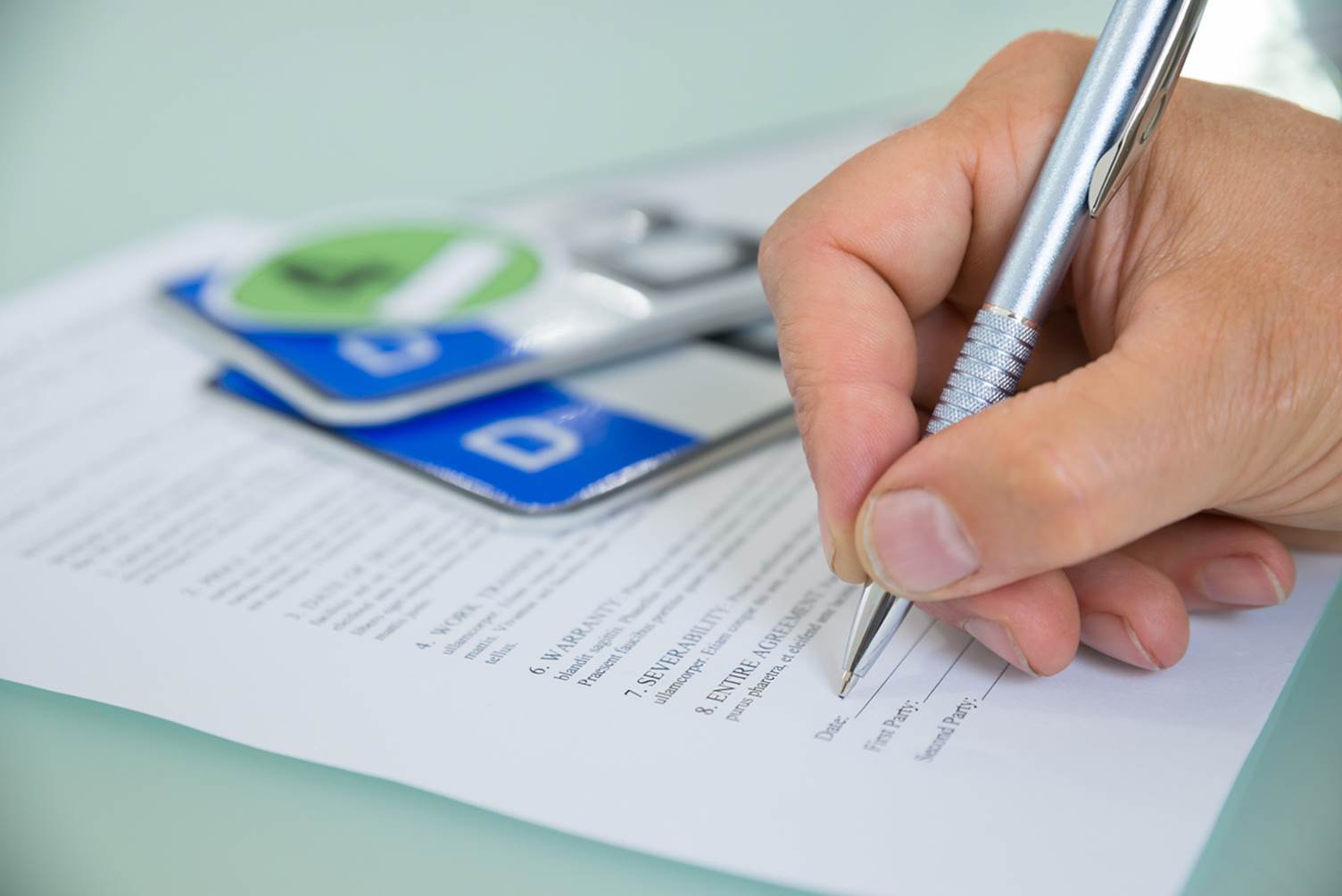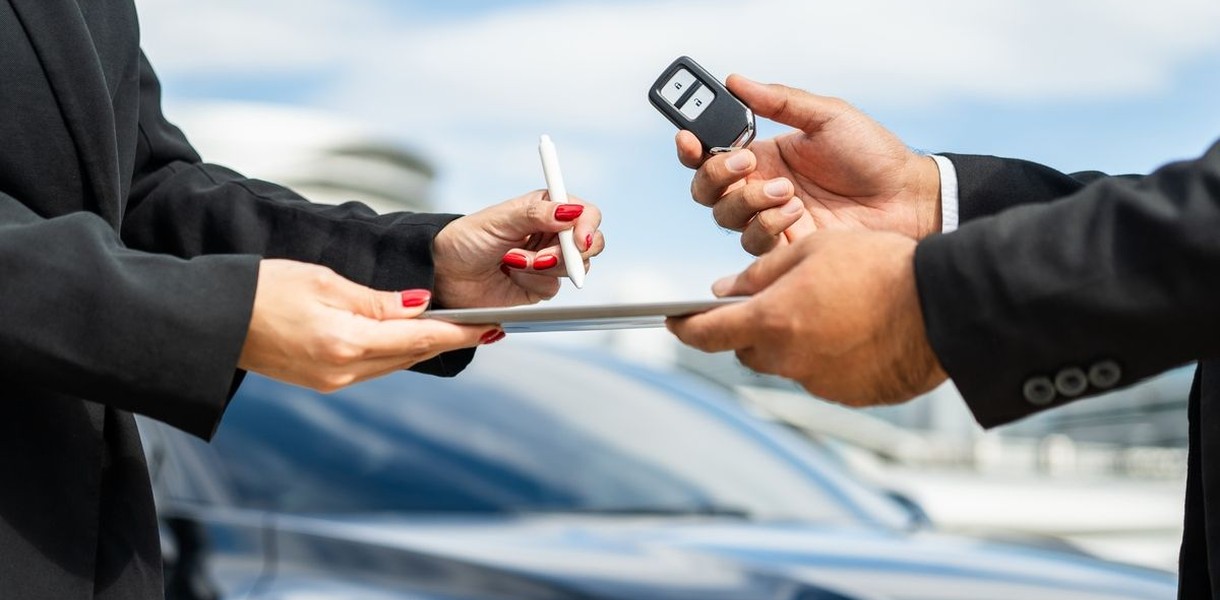Purchasing a car – whether new or used – is an important step, both financially and logistically. Given the complexity of the documentation and legal obligations involved, this is a process that must be approached carefully. Although the joy of having a new car can overshadow these aspects, the necessary documents and checks should not be underestimated. A good knowledge of the documents and the bureaucratic process can prevent numerous inconveniences and financial risks. Whether you purchase a car from an authorized dealer or from an individual, there are essential differences in the steps you need to take. Understanding the necessary documents, the obligations of each party and the potential risks can guarantee you a safe and transparent car transaction. In this article, you will find out what documents you need to do when you want to buy a car, whether it is a new or used one.
Contents:
- Car purchase documents for a new car
- Documents required for buying a used car from a dealer
- Documents for buying a car – Purchasing a car from an individual
- What documents do you need to have when buying a car – Risks and additional checks
- Car Buying Procedure – Ensuring a Transparent and Secure Transaction
1. Car purchase documents for a new car
In general, when buying a new car, the process is simpler than in the case of a used car. Usually, authorized dealers provide all the necessary information and documents, and the risks are minimal, since the car comes with a warranty and is unused. However, it is essential to have all the documents in order, so that you can drive legally and ensure that you do not encounter problems with registration.
What documents do you need when buying a car?
- the purchase invoice – it is clear proof that you are the owner of the car and contains information about the price paid and the seller's details;
- certificate of conformity (COC) – document issued by the manufacturer, which certifies that the car meets technical and safety standards;
- Vehicle Identity Card (CIV) – the document that includes all the technical details of the car. It is issued by the Romanian Motor Registry (RAR);
- Warranty certificate – new cars come with a standard manufacturer's warranty, which covers certain defects or repairs for a specified period. This can be issued in both physical and electronic format.
Additional steps to buying a car. If you don't have the full amount needed to purchase, many dealers offer financing or leasing solutions. Through their partners, they can manage all the steps necessary to obtain a personalized financing or leasing plan. In addition, authorized dealers can facilitate the car handover process, managing the sale of your old car for you.
2. Documents required for buying a used car from a dealer

photo source: Shutterstock.com
Buying a used car from an authorized dealer is a safer process than buying from an individual. In addition to offering technically tested and verified cars, authorized dealers can also offer extended warranties, which adds extra security in case of unforeseen breakdowns. There are several mandatory documents in the car buying procedure.
Here are exactly what documents are required when buying a car:
- Sales and purchase agreement – this document formalizes the transaction between the buyer and the seller. Authorized dealers will draw up a contract that specifies details such as the price, the dates of both parties, and the description of the car;
- vehicle identity card (CIV) – as with new cars, the technical card provides all the necessary information about the vehicle's technical condition;
- Registration certificate – the car must be registered at the time of purchase. The registration certificate will be sent to the new owner after the transfer formalities are completed;
- car history – it is advisable to request the complete history of the vehicle, including all technical interventions, overhauls or accidents in which it has been involved.
Additional options. If you opt for a used car, it is recommended to also consider an extended warranty. This reduces the financial risks associated with repairs and covers various components of the car, such as the engine, transmission or clutch, for a period of up to three years. This warranty can be a real advantage in the event of unforeseen breakdowns, thus saving you considerable amounts of money.
3. Documents for buying a car – Purchasing a car from an individual
Buying a car from an individual involves more risks and requires special attention when checking the documents. The lack of warranties or detailed history of the car can create problems in the future, so it is essential to follow the correct steps to protect your investment. The documents required to buy a used car from an individual are:
- sales contract – in the case of purchases from individuals, this document must be concluded in writing and signed by both parties. It must include all relevant data of the parties and the car;
- vehicle identity card (CIV) – the seller must provide you with this document, which includes technical information about the car;
- registration certificate – checking the registration certificate is essential to confirm that the car is legally registered and that there are no restrictions on it (usually when handing over the certificate after signing the sales contract, the seller will mention the buyer's details in the "Transferred to" section of the registration certificate - this certifies that a sales contract has been concluded for the car in question and the asset has already been handed over to the new owner);
- the registration certificate - necessary for changing the owner in the authorities' database - is issued by the competent tax authorities in the locality or administrative unit where the seller has his/her residence and in which the car is registered (contains the tax authority's visa);
- The road tax and mandatory RCA insurance – make sure that the car is covered by a valid RCA policy at the time of the transaction.
Documents required for car purchase for a registered car
When purchasing a pre-registered car, it is important to make sure that all the necessary documents are in order, both for the transfer of ownership and for registering the vehicle in your name. Here is a list of the necessary documents:
- Sales and Purchase Agreement : This document is mandatory and certifies the transfer of ownership from the seller to the buyer. It must be completed and signed by both parties and contains information about the vehicle, the price, and the personal details of the seller and buyer.
- Vehicle Identity Card (VIC) : The vehicle identity card is the official document that certifies the technical characteristics of the car. It must be in original and handed over to the buyer upon transfer of ownership.
- Registration certificate : This document must be completed with the words "transferred to..." and the buyer's details. The registration certificate is required to register the vehicle in the name of the new owner.
- Buyer's identity document : The buyer's ID card or passport, in original and copy.
- Vehicle registration card : The registration card must be endorsed by the tax authority (City Hall) in the locality where the seller resides, to confirm that there are no outstanding taxes.
- Seller's tax certificate : This certificate is issued by the City Hall and certifies that the seller has no debts related to the vehicle. It is mandatory for the transfer of ownership.
- Valid RCA insurance : The buyer must have valid RCA insurance for the vehicle they are going to register. If the previous insurance is still valid, it can be transferred to the new owner, but it is recommended to issue a new insurance in the buyer's name.
- Periodic Technical Inspection Certificate (ITP) : The ITP must be valid at the time of purchase. This certificate certifies that the vehicle is in good technical condition and can be driven safely.
- Registration tax payment receipt : To register the vehicle in your name, you will need to pay a registration fee at the car registration service.
- License plates (in some cases): If the seller wants to keep the license plates (for example, if they are preferential numbers), you will need to request the issuance of new plates.
4. What documents do you need to have when buying a car – Risks and additional checks

photo source: Shutterstock.com
When it comes to buying a car, risks are inevitable, especially in the case of used cars. Therefore, it is recommended to do a thorough check before concluding the transaction. Among the essential steps are the following:
- technical condition check – if you have doubts about the technical condition of the vehicle, it is advisable to have it checked at an authorized RAR service. This is essential in the case of purchases from individuals, where the car may have hidden problems or defects that the seller hides;
- Document verification – make sure all documents are original and not forged.
- Legal obligations of the seller and buyer – the seller is required to provide all necessary documents for the transfer of ownership, and the buyer must follow the legal steps to register the vehicle in his name. Also, don't forget to change the RCA insurance to your name.
5. Car Buying Procedure – Ensuring a Transparent and Secure Transaction
The security of a vehicle transaction is essential, from both the buyer and the seller's perspective. Especially in the case of sales between individuals, the lack of a formal framework can lead to financial or legal risks. Checking the vehicle's documents and history, as well as signing a legal contract, are necessary steps to avoid future inconveniences. An important aspect of a secure transaction is the collaboration with an authorized car dealer , who can provide both transparency and additional guarantees. If you opt for financing, dealers can help you with personalized solutions that allow you to purchase the car you want, without additional financial worries. A dealer can also offer you extended warranties, which cover any subsequent repair costs.
In conclusion, purchasing a car, whether new or used, involves a complex bureaucratic process. From document verification to the legal formalities required for the transfer of ownership, each step must be carefully followed to ensure that the transaction is safe and legal. It is important to know all the documents you need when buying a car, so that the transfer of ownership and registration can proceed without problems.
